Social inequality, colonialism and the commodification of disaster-related recovery are central to explaining the not-so-natural disasters caused by the 2017 Caribbean hurricane season, a recent special issue by Alternautas blog shows.
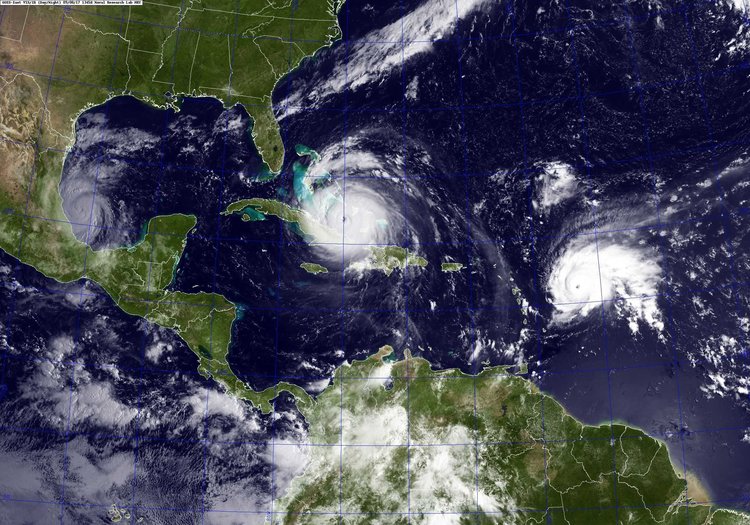
Satellite images of hurricanes Harvey, Irma and Jose in 2017. Source: NOAA/NASA/alternautas.net.
Alternautas , a peer-reviewed blog dedicated to critical explorations of development and the civilizational crisis has recently published a special issue titled “The Making of Caribbean Not-so-Natural Disasters.” The special issue focuses on the political ecology of the disaster conditions, responses and consequences of the 2017 Caribbean hurricane season, historic in frequency and intensity.
As Gibran Cruz-Martinez and colleagues make clear in the introduction, social inequality, colonialism and the commodification of disaster-related recovery are central to explaining the not-so-natural disasters caused by hurricanes Irma and Maria and other storms in the region. In this context, the special issue examines the making of these Caribbean not-so-natural disasters, as well as alternative Caribbean futures “being imagined and enacted in the wake of the 2017 hurricane season, and how are these entangled with a sense of greater infrastructural, relief or racial justice — both local and regional.”
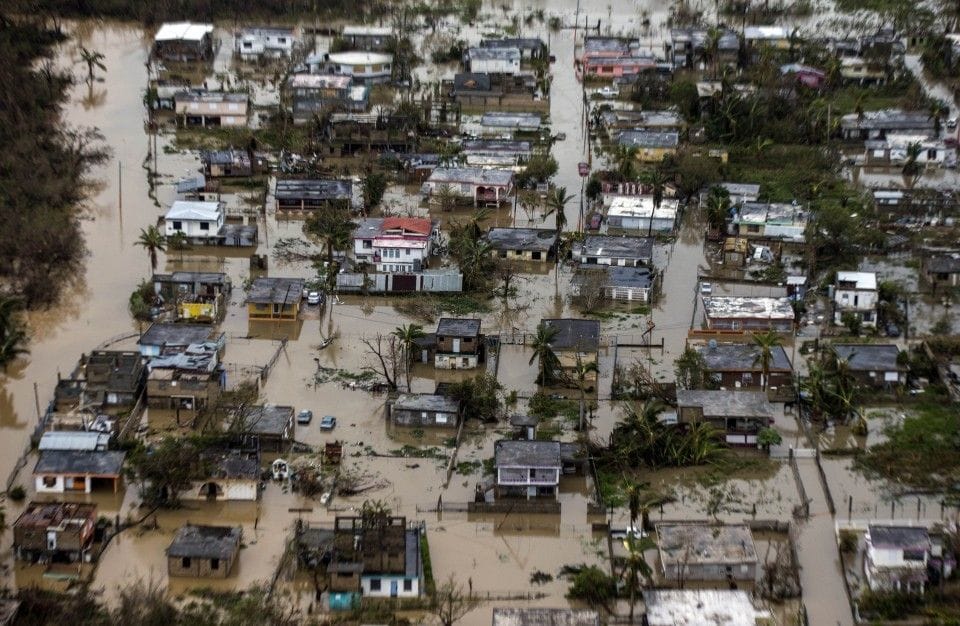
Aerial photo of the flooding in the costal town of Loiza, Puerto Rico, after Hurricane Maria. (Dennis M. Rivera Pichardo for The Washington Post)
The rich collection of contributions to the Special Issue includes explorations of:
- the narratives and experiences of communities without access to the public water system in post-Hurricane María Puerto Rico (by Javier A. Arce-Nazario);
- the role of colonial plantation agriculture in enhancing hurricane vulnerability in the British Caribbean (by Oscar Webber);
- the influence of Puerto Rico’s degenerative colonial status and neoliberal rationalities in the post-hurricane Maria disaster, and the possibilities of emancipatory politics in this context (by César J. Pérez-Lizasuain);
- the lessons learned from Cuba’s exceptional experience with managing disaster risk reduction in the aftermath of hurricane Irma (by Robert Coates);
- the conflicts and challenges in the reconstruction process of a sustainable energy system after Hurricane Maria (by Lily Bui, to be posted online soon);
- the history and current status of the Puerto Rican left in the aftermath of the hurricane (by Fernando Tormos, to be posted online in soon);
- Naomi Klein’s new book The Battle for Paradise: Puerto Rico takes on the Disaster Capitalists (by Sarah Molinari, to be posted online soon);
- the personal experience of agony and suffering before and after the devastation of the Caribbean by Hurricane Maria, expressed through a poem (by Celeste Ramos, to be posted online in soon).
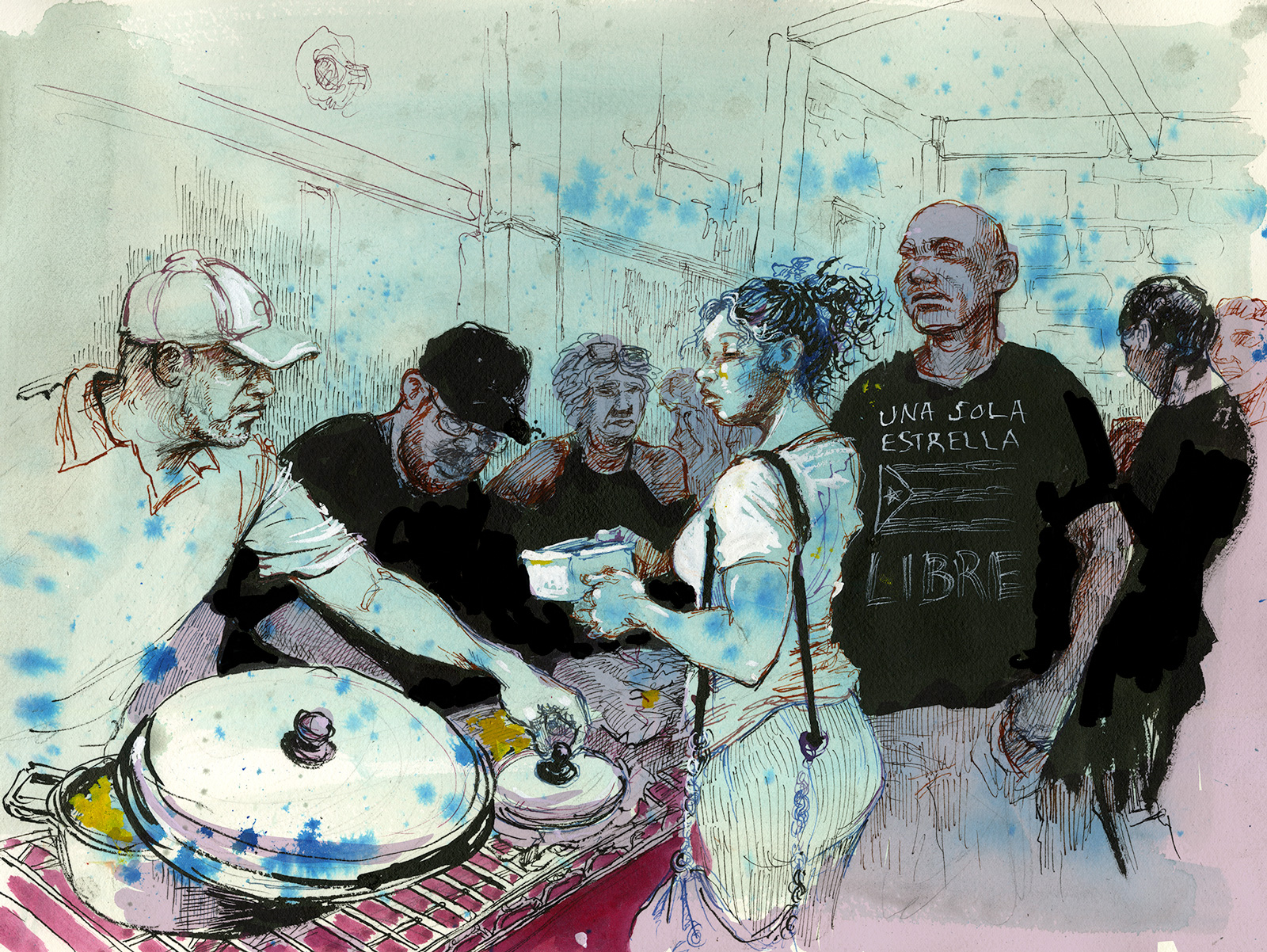
People line up for food at the Centro de Apoyo Mutuo in Caguas, one of the many mutual aid projects that emerged from grassroots community organizations in the aftermath of hurricane Maria in Puerto Rico to provide disaster relief and promote a more just recovery. Author: Molly Crabapple, amazing artist and journalist, 2017. Source: New York Review of Books.
The editors expect that this will be the beginning of more “critical social research examining the Dominica, Haïti, Turks & Caicos, Virgin Islands, Montserrat, Guadeloupe, St Kitts & Nevis, St. Martin, the Dominican Republic, and other Caribbean countries, which encounter natural and not-so-natural disasters.” So keep tuned in to Alternautas and to ENTITLEblog for future work on this crucial topic, which is increasingly front and center in global political-ecological thought and actions.


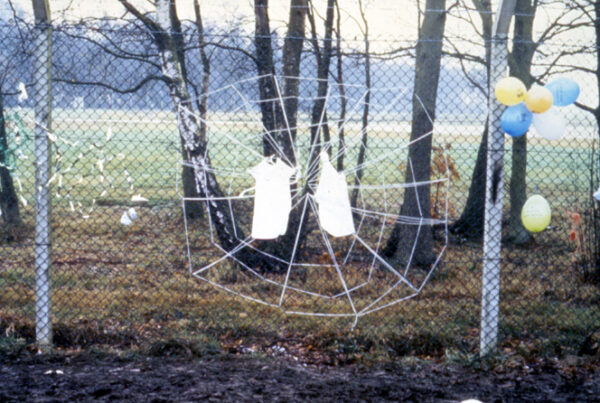
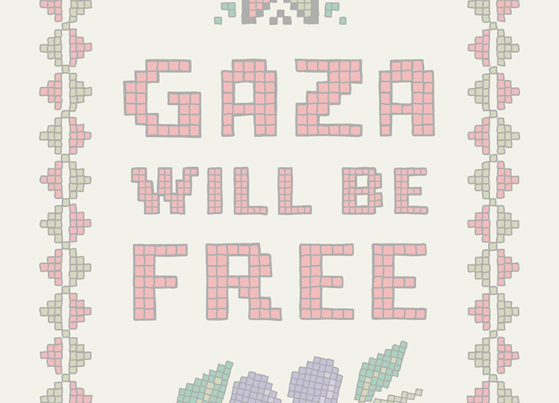
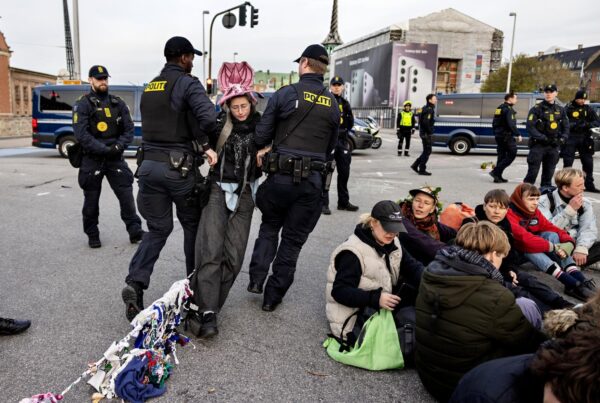
Reblogged this on Political Ecology Network.